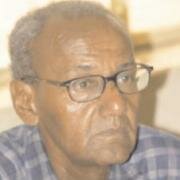A state is a composition of a land called a country and inhabitants called citizens
. A country is a piece of land identified by known recognized borders. A state cannot be a state unless its borders are protected by a strong well-equipped army and its citizens are enjoying safe life, abundance in commodities and availability of services at prices affordable to the majority of the people. Six institutions are responsible of sustainability the existence of a state. Let us apply this criterion to Sudan and deduce if we really have a proper state or not.
1. The Army: The army is well equipped, well staffed and well trained. It succeeded in protecting 7672 kilometers of borders with 8 countries: 174 kilometers with CAR,1 403 Kilometers with Chad, 1276 with Egypt, 382 with Libya, 682 with Eritrea, 744 with Ethiopia, 2158 with South Sudan and 853 coast line with Saudi Arabia. Only few kilometers in three areas of dispute with Egypt in Halayeb, Ethiopia in Fashaqa and South Sudan in Abyei are still unprotected. Armed forces subdued all internal military movements. So, the army fulfilled its duties in the best professional manner o protect the state.
2. National Intelligence and Security Service (NISS) fully succeeded in performing its duties in monitoring all political and military activities of the opposition as well as defusing all plots and plans to introduce or export terrorism activities of the fundamentalists Islamic groups. Now Sudan is safe and immune against terrorism and human trafficking.
3. Police Force: Today the police force of Sudan is one of the best in the region. Well-equipped, well-trained and well-staffed. Towns and big cities of Sudan ar ones of the safest in the region.
4. Judiciary: It is the sensitive branch of governance. In Sudan it is now performing in the best, ideal, fair and efficient manner. The recent verdict of imprisoning two of high rank government officials of the Ministry of Health in defamation suit filed by a citizen is a conclusive manifestation of the fair performance of the judiciary.
So, the four mentioned institutions of the state successfully passed the criteria of a modern state (4 out of 6).
5. The executive body: This is the central council of ministers and the states’ councils. This is the failed institution. Its failure led to the exhaustion of the four successful institutions. Almost all historically active schemes, projects or public companies greatly contributed to the GDP of the state collapsed e.g. Gezira Cotton Scheme, Textile, Oil Mills, Tannaries, Railways, Airways, Shipping Lines, River Transport and others.
The executive bodies failed to avail commodities, services, education and health care in abundance and affordable prices. It also failed in a fair development in the regions on basis of equitable share of wealth and power. This led to resentment, taking arms, forming dangerous military insurgence, marginalization complaints and to exodus of people who flooded the big towns especially Greater Khartoum. This inefficiency of government was primarily due to the previous policies of fully ambling Islamic Movement members, tribal balances and the appeasing and rewarding of the returning military insurgent factions. All these at the expense of competency of the selected ministers. Some of them lack the basic qualifications of education, experience, managerial skills and dedication. The nearly announced cabinet is born after long agony and labour. I don’t expect its success in addressing the crisis of the state. The hard work and excellent outcome of the national dialogue boiled down to “struggled on the cabinet seats).
The other aspect of the failure of the executive body is the balanced external policies. It is trying to strike as impossible balance between two parallel axes. One is the axis of America, Saudi Arabia, Emirates, Kuwait and Bahrain, the other is the axis of Turkey and Qatar. The first is against the Global Islamic Movement. The other is fully sponsoring it. This unclear path is seriously jeopardizing the fruitful normalization of efforts with the first axis and hence impeding the flow of assistance to prop the failing economy.
6. The last is the legislative bodies. I think they all failed – central or state legislators – to exercise their constitutional duties to detect and hold accountable members of the executive bodies and recommend or cast a vote of no-confidence in any one of the members of those councils. Not a single case is or was reported since 1989.
By this analysis, Sudan is only 66% a success state, and hence cannot be a failed state.
-
Talk of the Hour: Yes, It is Military OccupationNext >



